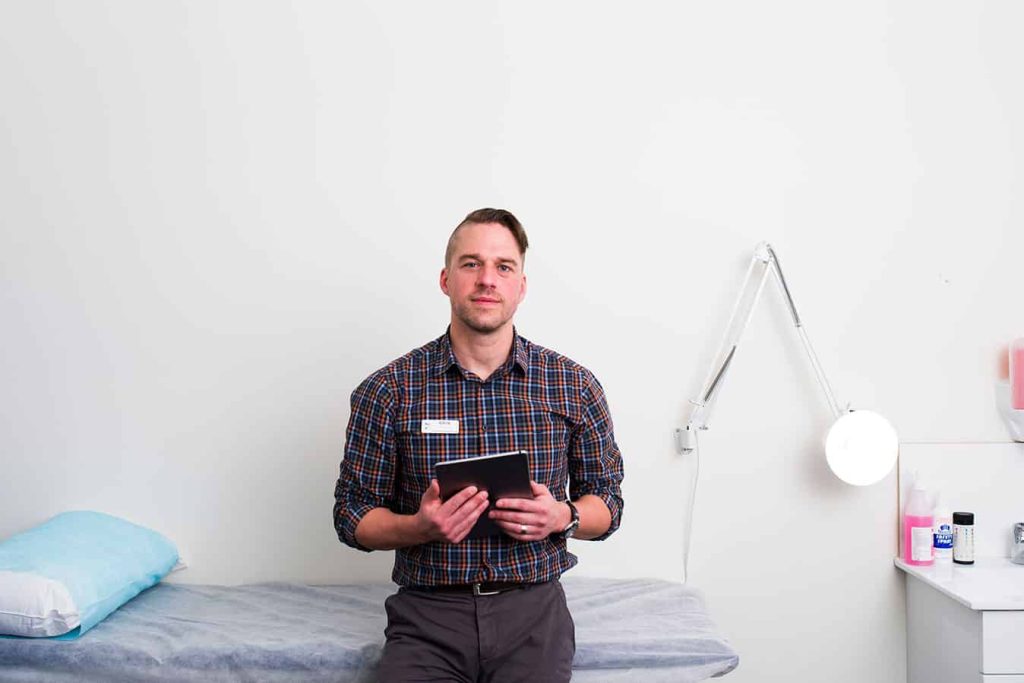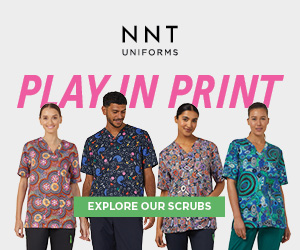On 12 December each year the Australian College of Nurse Practitioners (ACNP) holds Nurse Practitioner Day to mark the endorsement of the first NPs in Australia – Sue Denison and Jane O’Connell – back in 2000.
Almost two decades on, more than 1,700 Nurse Practitioners are endorsed with the Nursing and Midwifery Board of Australia.
The date also coincides with International Universal Health Coverage Day (UHC), which aims to mobilise diverse stakeholders to call for stronger, more equitable health systems to achieve UHC.
ACNP runs Nurse Practitioner Week annually to highlight the dedicated work of NPs and inspire the next generation of nurses to pursue the important career pathway.
Canberra-based Nurse Practitioner Chris Helms gave an insight into his role ahead of Nurse Practitioner Day and UHC Day.

How does your practice improve access to healthcare?
I focus my clinical practice on populations or communities that have difficulty accessing mainstream healthcare, who are disproportionately affected by the social determinants of health. For example, I provide clinical services in a homelessness clinic in Canberra, and also work in a remote Aboriginal community in far north Queensland. My clinical interest revolves around establishing and reinforcing linkages that support a health consumer’s ability to stand on equal footing with the health system, to ensure their voice is heard, understood and accounted for in care planning and delivery.
What benefits can a nurse practitioner bring to their community or specialty?
From a practical perspective, you see nurse practitioners spending more time with their clients. That time is spent understanding how a disease process or circumstance is affecting an individual’s perception of disease, and how they cope with it. That time is then spent on developing an effective and evidence-based management plan that centres care around individual patient needs. Nurse practitioner consultations frequently centre on education strategies, which build upon a person’s capacity and capability to proactively, safely and effectively manage their own health and well-being. The benefit of a nurse practitioner is that primacy is placed on health promotion and disease prevention strategies, and are viewed with a differing lens that questions conventionality. Although I can treat many common acute and complex long-term illnesses just as effectively as a medical practitioner, I prefer to focus my efforts on strategies that prevent those illnesses in the first instance.
What do you love most about your role as an NP?
As a nurse practitioner, I have the freedom to constantly redefine myself, from both a professional and clinical perspective. I have never been bored with nursing. Not once. As a nurse practitioner, I’ve had the opportunity to redefine traditional paradigms of care, and have the flexibility to practice to the very limits of my professional scope of practice. I have been a clinician, manager, educator, researcher, and a regulator. All within the domain of nursing. How many professions can say they have had that kind of opportunity?
What question are you asked most about the role of an NP?
I love the well-intentioned double-entendre when people ask, “Why didn’t you just become a doctor? You’re smart enough to be one…” People are usually a bit surprised when I tell them I’ve had the opportunity to become a doctor, but realised its limitations and decided that nursing was a better fit for me. Although many of the skills and abilities I bring to my clinical role overlap with those of a medical practitioner, the philosophy that underpins my care is wholly different. That invariably leads to circular discussions on what a “holistic nursing model” versus a “medical model of care” entails. At the end of the day, I just say there are some nurses who are better suited to being doctors, and there are some doctors who are better suited to the contemporary role of the nurse practitioner.
Where would you like to see the future of NP’s develop in the next ten years in Australia?
I would like to see a paradigm shift in the education and training of NPs, which focuses their clinical training on healthcare delivery in the generalist primary care context. That’s where I see the greatest opportunity for full expression of the nurse practitioner role. When you’re training as an NP in a metropolitan hospital you’re competing for clinical learning and teaching opportunities with registrars, residents and interns. You don’t really see that in primary healthcare, as there’s more than enough work to go around. In order to make that happen the Commonwealth needs to rethink the funding of nurse practitioner clinical education.








